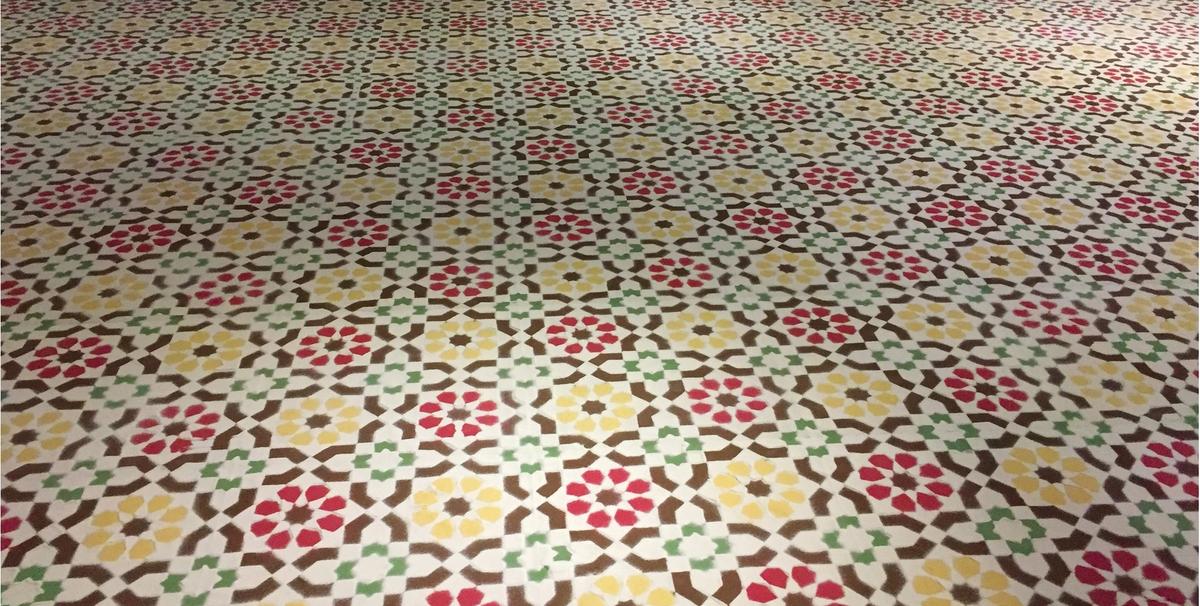Works by women artists are making waves at the fourth edition of 21,39, the non-profit art initiative in Jeddah, Saudi Arabia, which opens this week (until 6 May). The annual event, which has made a major contribution to the burgeoning Middle Eastern art scene, includes exhibitions in five venues, educational workshops, visits to artists’ studios and commercial gallery openings. Princess Jawaher bint Majed bin Abdulaziz, who founded the Saudi Art Council in 2013, is the driving force behind 21,39 (the geographic coordinates for Jeddah).
This year’s programme, organised by the independent curators Sam Bardaouil and Till Fellrath, is entitled Safar, the word for travel or journey in Arabic. The curatorial framework “highlights this edition’s focus on education and discovery”, the curators say. “We have conceived it as both a public forum for creative exchange as well as a visual arts exhibition.”
New commissions by 17 emerging Saudi artists are on view at The Mall space located in the Gold Moor Centre, a shopping centre in the Al Shate’a district. Jeddah-born Dana Awartani has covered the floor with patterns using locally sourced coloured sands. The exquisite piece recalls the decorative motifs on traditional Islamic tiles (many visitors initially think that the floor is made of real tiling).
A video shows Awartani destroying an earlier version of the work, created in an abandoned house in the old part of Jeddah. “The two components together are intended as a symbolic commentary on the modern-day destruction of our cultural identity and heritage,” she writes in the exhibition catalogue.
Manal Al-Dowayan’s multi-media installation Crash explores the controversial topic of female teachers who have died in car crashes across Saudi Arabia, the only country that bans women from driving. The media never mention the victims’ names, says Al-Dowayan, who has included a news report and photographs in her piece. “These [press] images are an erasure and dismissal of the last remaining traces of a teacher, a woman, a human,” the artist says.
Bardaouil and Fellrath took six of the participating artists on study trips to museums and biennials in Berlin and South Korea last summer. Marwah Al-Mugait, a Riyadh-based artist who is showing the video We Were (2017), says: “It is hard for me to say which place inspired me the most. I feel like a child walking out of Disneyland being asked: ‘What was your favourite ride?’” The artists “soaked up the experience”, Fellrath says. “It is all about taking a journey, and taking risks on that journey. What they have created shows what they are capable of.”
Aaron Cezar, the director of the London-based Delfina Foundation, attended the exhibition preview. “It’s clear that Safar has been a transformational experience for the artists who have produced new works through mentoring and curatorial support,” Cezar says. “I think that the significance of this particular format will be how the artists continue to develop beyond the process.”


